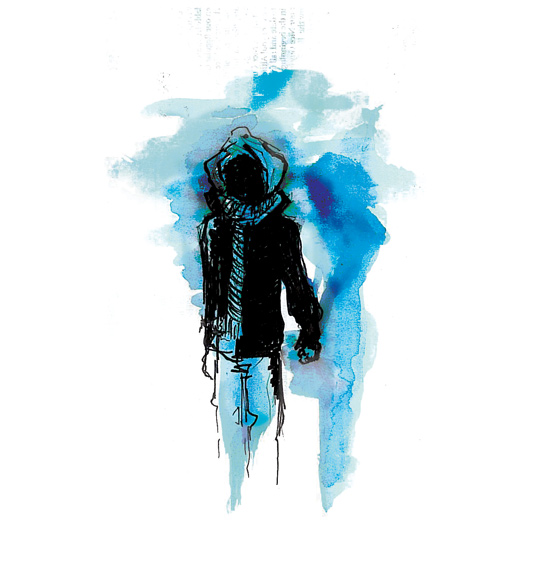Brent Rose
Managing Editor
After shutting the blinds to block the sun, I went back to bed.
I feel anxious everywhere I go – work, school, anywhere with friends – so I stay in my filthy, pizza box-littered room trying to forget about my cravings. At night I wake up sweating, looking for my fix.
The simplest things distract me now and again, but after awhile I relapse.

I need it. I’m an addict, but I don’t want help. I want more. There were times when I could feel my heart racing, my head pounding – times when I thought I would die. It doesn’t matter. Nothing is worse than going cold turkey.
But it wasn’t my choice. Then again, what choice do you have when you’re in love?
Everyone has rejected, or has been rejected by, someone else. Usually, it’s no big deal. Some look for conversation, some look to dance, others look for sex, but no one looks for love.
It just happens.
Being in love is like taking drugs. When you’re high, you feel great. When you come down, you feel sketchy.
“The same brain region where we found activity [when in love] becomes active also when you feel the rush of cocaine,” said Dr. Helen Fisher at a TED talk about studying the brain in love. “But romantic love is much more than a cocaine high. At least you come down from cocaine.”
It hits me like an LSD flashback; we’re walking in the snow holding hands, talking about a subject forgotten, but the emotion remains. All I want to do is let go, but I’m still holding her warm, mitten-covered hand.
Fisher, a Rutgers University professor of human evolution studies and head consultant for dating website Chemistry.com, explains that the ventral tegmental area (VTA) of the brain lights up under an MRI scan when someone is in love. The VTA is the brain’s reward system and produces dopamine, a neurochemical gift that stimulates pleasure in order to reinforce certain behaviours.
Like cocaine, love can become addictive because it produces high levels of dopamine, which makes it more tolerable to the user over time and therefore leaves them craving more of it.
The phone’s ringing; it’s her but I don’t want to pick up. It’s bad for me. She calls at the worst times, always when I forget about her. It makes me feel so alone because I can’t see her, hold her, talk to her like we use to – staying up all night cuddling.
I pick up.
Fisher’s research studied 15 college-age heterosexual women and men who broke up with someone recently but were still “in love” with their ex. Like a drug addict, most participants were craving their ex every waking hour, wanting them to come back – needing their love.
The study used several experiments to map the brain on love. Participants were asked to contemplate mathematical tasks, as simple as counting down from a random number by five, while looking at a photo of their former love.
I stuff the photos of us smiling into my bottom drawer – not destroying them like I should. I keep them in case I need a quick fix.
After scanning the participants’ brains during these experiments, it revealed that parts of the braian highlighted were the VTA, the nucleus accumbens and orbitofrontal/prefrontal cortex, areas linked to the feeling of craving more; and the insular cortex and the anterior cingulated, related to feeling physical pain and agony.
Fisher concludes, “the passion of ‘romantic love’ is a goal-oriented motivation state rather than a specific emotion.”
She says that the similarities to drug addiction are comparable and that people rejected by a partner can undergo the same withdraw symptoms, physically and emotionally.
Some junkies can take it to the extreme by becoming obsessive, suicidal or even homicidal. But most of us slowly recover from our addictions and move past the difficult times.
When you fall out of love – or more appropriately when someone stops loving you – to cheer you up, people will tell you “don’t worry, time heals all wounds.”
It’s not true – the wounds never go away.
Time just makes you numb.
Love–the hardest habit to kick




